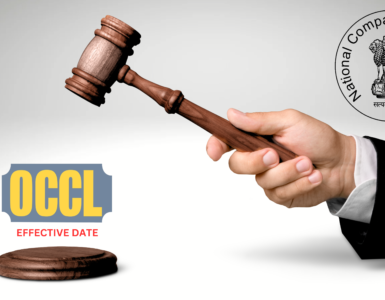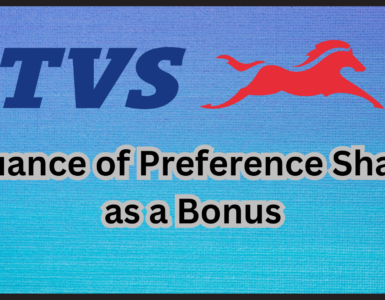Composite Scheme is between:
Reliance Communication Ltd. (RCom – Demerged company),
Reliance Telecom Ltd. (RTL – Demerged company),
Aircel Ltd. (Aircel – Resulting company),
Dishnet Wireless Ltd. (OWL-Resulting company),
Deccan Digital Network Pvt. Ltd. (Deccan -Transferor) and
South Asia Communication Pvt. Ltd. (SACPL -Transferor company)
In September 2016, there was an announcement of one of the biggest consolidation deal in the telecom sector between Rcom and Aircel, however, the regulatory authority National Company Law Tribunal (NCLT) has passed an order on August 14, 2017 amidst the series of objections being filed against the proposed scheme of arrangement.
Though initially many objections were filed against admission of the petitions, amongst all the contenders Chennai Network Infrastructure Ltd (CNIL) put forth the arguments and the NCLT Bench has in detail dealt with the contentions of the said objector.
CONTENTIONS
- According to CNIL, it is an unsecured creditor of the resulting companies to the extent of Rs. 1532.34 crore. CNIL addressed a letter dated April 26, 2017 to the Aircel entities calling upon them to furnish the necessary information about the proposed scheme of amalgamation and requesting them to make payment of the amounts due to CNIL. Since they did not receive any response to the said letter, they filed this application stating that the scheme is prejudicial to the interest of the creditors, therefore this petition shall be rejected
- Meeting of the creditors could be dispensed with provided the persons having 90% of the value of outstanding debt consented for approval of such scheme, otherwise, it is imperative to hold creditors meeting.
- Also, since there is a special arrangement in respect to repayment, CNIL will fall under separate class, by falling so, the threshold limit of having outstanding debt not less than 5% of the total outstanding debt as per the latest audited financial statement, as per section 230(3) of the Companies Act, 2013 (‘the Act’), is applicable to the debt outstanding in respect to that class only, not to the total outstanding debt. Therefore, CNIL’s credit value would be more than 5% value of the debt of that class enabling it to protect its right in realization of its debt
- As per section 230(4) of the Act, raising objection shall be construed to be a right to raise objection in a meeting to which a person received notice, not in respect to raising objection before Tribunal in the sense that a proviso must be construed with reference to the main clause
- They also stated that this scheme, in any event, shall be an arrangement with creditors as well since it will be prejudicial to the interest of the creditors
- Relying upon the following cases: ICICI Bank Ltd. (2002) (2) MhLA 276, Re Northgate Technologies Ltd. [(2012) 172 company cases 438], Re UB Nissam Breweries Pvt. Ltd. [(2011) 167 company cases 562], applicant counsel stated that wherever arrangement between the companies and its members is likely to affect upon creditors adversely, then it would be proper for the court to exercise its judicial discretion to convene meeting of creditors unless majority of the creditors representing 3/4th in value of the credit or otherwise given consent for the same.
- CNIL has sought for a direction from the NCLT Bench for ordering creditors meeting before admitting this Company Scheme Petition
RESPONSE TO THE CONTENTIONS
Aircel filed reply stating that since it is an arrangement between the company and shareholders, meeting of the creditors is not required under the provisions of the Act. Also, since CNIL, independently or in aggregate with other objectors, has not met the threshold limit, it cannot raise an objection to the Scheme.
PROVISION OF LAW
In accordance with section 230(1) of the Act, for approval of a scheme, the Tribunal may order calling, holding and conducting meeting of the members and creditors in such manner as the Tribunal directs. Further, as per section 230(9) of the Act, soon after such an order has been given for holding meeting, the Tribunal may dispense with calling of meeting of creditors or class of creditors, where such creditors or class of creditors having at least 90% value, agree and confirm, by way of affidavit to the scheme of compromise or arrangement
VIEW OF THE TRIBUNAL
- The objectors shall pass the test of qualification before raising objection. Non-receipt of notice would not make any difference as long as their rights are not effected due to non-receipt of notice. Non-receipt of notice will become fatal only when their non-appearance disabled them from right of hearing about their rights which is not there in the given objections.
- There are two types of arrangements u/s 230(1) of the Act; between the company and its creditors or any class of them or between the company and its members or any class of them. NCLT will normally order for calling and holding a meeting based on the application come from any of the categories. This discretion is left to NCLT to give an order, it can decide as to whether to order or not to order meeting by looking at the scheme of arrangement come before it
- Power u/s 230(9) of the Act will arise only when compromise or arrangement is made between the company and its creditors or class of them. Therefore, it could not be said that whenever any arrangement is contemplated, it is imperative to hold shareholders meeting as well as creditors meeting
- Vide NCLT order dated March 15, 2017 there were directions to hold shareholders’ meeting and also to issue notice to all the secured and unsecured creditors having outstanding debt of 5 lakhs and above as on September 30, 2016 and other regulatory authorities, this was duly held in meetings dated April 22, 2017 (resulting and transferor companies) and April 24, 2017 (demerged companies).
Since meeting of the creditors was neither asked by any of the companies, nor ordered by this Tribunal, the only recourse available to the creditors is to file objections provided the threshold limit is satisfied. Since none of these objectors, who have come before this Bench satisfy the said limit, these objections need not even be looked into by the Tribunal.
- The Tribunal applied a constructive interpretation that the persons whose meeting is held, they alone have to vote, but not other categories. Therefore, if the meeting is ordered and convened only to members, creditors cannot vote in that meeting. Therefore, raising an objection means filing an application before the Tribunal.
HELD BY THE TRIBUNAL
The entire Section 230 of the Companies Act, 2013 depicts the various stages happening in approval of scheme. Section 230 (4) is completely dependent and continuation to section 230 (1) and section 230 (3) of the Act. It is not an independent provision.
The restraint order passed by the Hon’ble Supreme Court of India is limited to the extent of restraining the earning of revenue by using 2G Spectrum licenses by Aircel. Department of Telecommunication (DoT) will still be in a position to proceed against Aircel in case the Hon’ble Supreme Court orders invalidate the 2G Spectrum license. Therefore, right of DoT still remains as before.
All objections raised by contenders are rejected saving the rights of the objectors on entering into terms with the petitioners.
*In order dated August 14, 2017 (CSA NO.185/2017) passed by the same bench of NCLT, the Tribunal rejected the objections raised by the Applicant (Ericsson).




